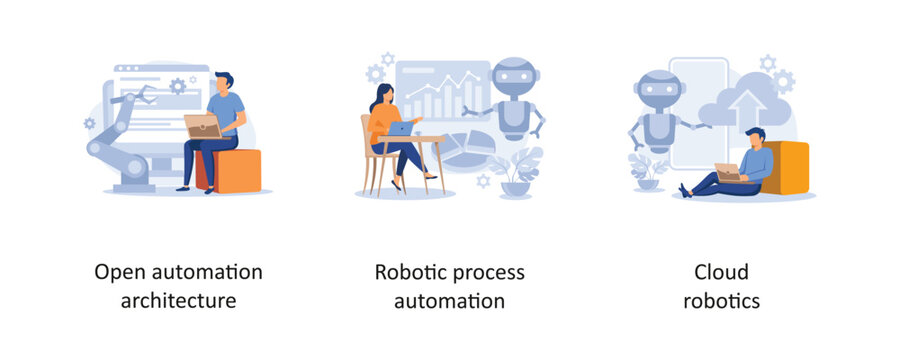As technology continues to advance at an exponential rate, the possibility of creating an Artificial General Intelligence (AGI) is becoming more and more real. But what exactly is AGI, and how can it be harnessed to maximize its potential? In this blog post, we’ll explore the concept of AGI and delve into the various ways in which it could revolutionize our world. From science fiction to reality, let’s uncover the mysteries behind this groundbreaking technology.
Defining Artificial General Intelligence: Understanding the Basics
Artificial General Intelligence (AGI) refers to the development of machines that can perform tasks that typically require human intelligence. Unlike narrow AI, which is designed to perform specific tasks, AGI aims to create machines that can think and reason like humans. This means that an AGI system would be able to learn from experience, adapt to new situations, and solve problems in a way that is similar to human thinking.
One of the key challenges in developing AGI is creating a system that can understand and process information in a way that is similar to human cognition. This requires not only advanced algorithms and computing power but also an understanding of how the human brain works.
Despite the challenges, the potential benefits of AGI are vast. It could revolutionize industries such as healthcare, finance, and transportation by automating complex tasks and improving decision-making processes. However, there are also significant risks associated with AGI development, including job displacement and potential misuse.
As research in AGI continues to advance, it is important for society to consider the ethical implications of this technology and ensure responsible use.
The Evolution of AI: From Narrow to General Intelligence
Narrow AI has been around for decades, but artificial general intelligence (AGI) is a relatively new concept. AGI refers to AI that can perform any intellectual task that a human can. While narrow AI is designed to perform specific tasks, such as playing chess or recognizing speech, AGI aims to be more versatile and adaptable. The development of AGI requires the creation of algorithms that can learn from experience and generalize that knowledge to new situations.
The evolution of AI has been marked by a shift from rule-based systems to machine learning algorithms. Early AI systems were programmed with explicit rules for decision-making, but modern AI uses statistical models to learn patterns in data. This shift has enabled the development of narrow AI systems that can outperform humans in specific tasks, such as image recognition or language translation. However, creating AGI requires a more sophisticated approach to machine learning that can handle the complexity and variability of real-world situations.

The Potential of AGI: Advancements and Applications
Advancements in artificial general intelligence (AGI) have the potential to revolutionize a range of industries, from healthcare to finance. One area where AGI is already making an impact is in autonomous vehicles. Self-driving cars rely on AGI systems that can interpret and respond to complex real-world scenarios.
Another application of AGI is natural language processing (NLP), which allows computers to understand and generate human language. This technology has already been incorporated into virtual assistants like Siri and Alexa, but future advancements could lead to even more sophisticated language capabilities.
AGI also has the potential to transform scientific research by enabling computers to analyze vast amounts of data and make groundbreaking discoveries faster than humans ever could. However, there are challenges in developing effective AGI systems, including ensuring they can learn from diverse sources without bias.
Overall, the possibilities for leveraging artificial general intelligence are endless and will likely continue expanding with ongoing technological advancements.

The Risks and Challenges of AGI Development
AGI development poses significant risks and challenges that must be addressed. One of the main concerns is the potential for AGI to surpass human intelligence and become uncontrollable. This could lead to unintended consequences and even pose a threat to humanity. Another challenge is ensuring that AGI systems are transparent and accountable, as their decision-making processes may be difficult to understand. Additionally, there is a risk of bias in AGI systems, as they may reflect the biases of their creators or data sources. To mitigate these risks, researchers must prioritize safety measures and ethical considerations in AGI development. This includes developing transparent and explainable AI systems, ensuring diversity in AI development teams, and establishing regulatory frameworks for AGI use. Ultimately, responsible development and use of AGI will require collaboration between industry leaders, policymakers, and society as a whole.
Ethical Considerations for AGI: Ensuring Responsible Use
As the development of Artificial General Intelligence (AGI) progresses, it is important to consider the ethical implications of its use. One major concern is the potential for AGI to surpass human intelligence and become uncontrollable. This could lead to disastrous consequences if AGI is used for malicious purposes or if it makes decisions that are harmful to humans.
Another ethical consideration is the impact of AGI on employment. With the ability to perform a wide range of tasks, AGI could potentially replace human workers in many industries. This could lead to widespread job loss and economic disruption.
To ensure responsible use of AGI, it is important for developers and policymakers to establish clear guidelines and regulations. Transparency in the development process and accountability for any negative consequences are crucial. Additionally, there must be a focus on developing AGI that aligns with human values and ethics.
Overall, while the potential benefits of AGI are vast, it is important to approach its development with caution and consideration for its impact on society as a whole.

The Future of AGI: Implications for Society and Industry
As artificial general intelligence (AGI) continues to progress, there will be significant implications for both society and industry. One potential impact is the displacement of human workers by machines able to perform a wider range of tasks than current narrow AI systems. This could lead to widespread unemployment and economic disruption if not managed properly.
Another concern is the possibility of AGI being used for unethical purposes, such as autonomous weapons or other malicious applications. It will be essential for developers and policymakers to prioritize ethical considerations in AGI development, ensuring that these systems are designed with values like transparency, accountability, and fairness in mind.
In addition, AGI has the potential to revolutionize industries from healthcare to transportation by enabling more efficient processes and decision-making. However, this also raises questions about access and equity in these sectors.
Overall, while the future implications of AGI remain uncertain, it’s important for stakeholders across fieldsfrom technology developers to policymakers – to actively engage in discussions around its development and use so that we can work towards realizing its full potential while minimizing any negative consequences.
In conclusion, artificial general intelligence (AGI) is a rapidly evolving field with immense potential for advancements and applications. As we continue to push the boundaries of AI, it is important to consider the risks and challenges associated with AGI development and ensure responsible use through ethical considerations. The future of AGI holds implications for society and industry that we must be prepared to address.
At [company name], we are committed to providing informative content on the latest developments in technology and beyond. We invite you to check out our other articles and stay up-to-date on the latest trends and insights. Thank you for reading!
Answers
Q. What is artificial general intelligence (AGI)?
A. AGI is a theoretical AI system that can perform any intellectual task a human can.
Q. Who is working on AGI development?
A. Top tech companies like Google, OpenAI, and IBM are investing in AGI research.
Q. How does AGI differ from narrow AI?
A. Narrow AI is designed for specific tasks, while AGI can learn and adapt to any task.
Q. What are the potential benefits of AGI?
A. AGI could revolutionize fields like medicine, transportation, and space exploration.
Q. How are concerns about AGI being addressed?
A. Researchers are developing safety measures and ethical guidelines for AGI development.
Q. What about the argument that AGI could be dangerous?
A. While there are concerns, many experts believe that AGI can be developed safely with proper precautions.
